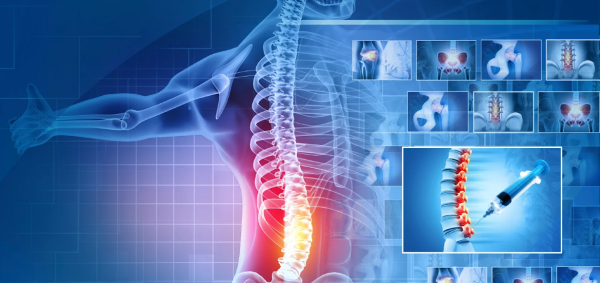
United States, 1st Jul 2024, King NewsWire - Back pain is a prevalent issue that affects millions worldwide, often varying in severity from mild discomfort to debilitating pain that significantly impacts daily life. Serious back pain, particularly chronic or acute conditions, requires a multifaceted approach to management and treatment. Here, we explore some of the most effective treatments currently available.
1. Medical Evaluation and Diagnosis
Before any treatment plan can be implemented, a thorough medical evaluation is crucial. This typically involves physical exams, imaging tests (such as X-rays or MRIs), and sometimes nerve studies to pinpoint the exact cause of the pain. Understanding whether the pain is due to a herniated disc, spinal stenosis, arthritis, or another condition informs the most effective treatment strategy.
2. Pain Management Medications
For acute episodes of serious back pain, over-the-counter pain relievers like ibuprofen or acetaminophen may suffice. However, for more severe pain, prescription medications such as muscle relaxants, narcotics, or anti-inflammatory drugs might be necessary. These medications are usually prescribed on a short-term basis and under close medical supervision due to their potential side effects.
3. Physical Therapy
Physical therapy plays a crucial role in treating serious back pain by strengthening muscles, improving flexibility, and correcting posture. Therapists tailor exercises to the individual's condition, focusing on core strengthening and specific movements to alleviate pain and prevent future episodes. Techniques such as ultrasound, heat or ice packs, and electrical stimulation may also be incorporated to reduce inflammation and promote healing.
4. Injection-Based Treatments
In cases where oral medications and physical therapy are insufficient, injections can provide targeted relief. Epidural steroid injections deliver anti-inflammatory medication directly into the epidural space around the spinal cord, reducing inflammation and pain. Facet joint injections, nerve blocks, and trigger point injections are other options that can provide temporary relief and aid in diagnosing the source of pain.
5. Surgical Interventions
When conservative treatments fail to alleviate serious back pain or when there is an identifiable structural issue (such as a herniated disc or spinal instability), surgery may be considered. Procedures range from minimally invasive techniques like microdiscectomy or laminectomy to more complex spinal fusion surgeries. Surgical intervention aims to relieve pressure on nerves, stabilize the spine, and restore function.
6. Alternative Therapies
Complementary and alternative therapies can complement conventional treatments for serious back pain. Techniques such as acupuncture, chiropractic adjustments, massage therapy, and yoga have shown promise in reducing pain, improving mobility, and enhancing overall well-being. These therapies are often used in conjunction with medical treatments to provide holistic care.
7. Lifestyle Modifications
Long-term management of serious back pain often requires lifestyle adjustments. Maintaining a healthy weight reduces strain on the spine, while ergonomic improvements in workspace and sleeping environment can alleviate pressure. Quitting smoking promotes better circulation and tissue healing, which is crucial for recovery from back injuries.
8. Psychological Support
Living with chronic back pain can take a toll on mental health. Anxiety, depression, and stress can exacerbate pain perception and hinder recovery. Incorporating mental health support, such as cognitive-behavioral therapy or relaxation techniques, can empower individuals to cope with pain more effectively and improve overall quality of life.
9. Education and Self-Management
Understanding the condition and learning self-management strategies are essential components of treatment. Educational programs teach proper body mechanics, strategies for pain flare-ups, and when to seek medical attention. Empowering patients with knowledge equips them to actively participate in their recovery and make informed decisions about their health.
10. Long-Term Monitoring and Follow-Up
Serious back pain often requires ongoing monitoring and adjustments to treatment plans. Regular follow-up appointments with healthcare providers allow for evaluation of progress, modification of therapies as needed, and early intervention if new symptoms arise. This proactive approach helps prevent worsening of the condition and promotes long-term well-being.
In conclusion, treating serious back pain requires a comprehensive and individualized approach that addresses both the symptoms and underlying causes. By combining medical treatments, physical therapies, lifestyle modifications, and supportive interventions, healthcare providers can effectively manage pain, restore function, and improve quality of life for patients experiencing serious back pain. Always consult with a healthcare professional to determine the most appropriate treatment plan based on your specific condition and needs.
Check out the links for more information about Back Surgery, Spine Surgery, or iSpine Renew. Follow us on Facebook, X, and Google My Business.
The text above is intended for general informational purposes only and should not be considered as medical advice. Contact your doctor for proper consulting of any physical or emotional concern.
Media Contact
Organization: iSpine Renew
Contact Person: Office Manager
Website: https://kaufmanspinesurgery.com/
Email: Send Email
Country:United States
Release id:13759
The post A comprehensive Guide on Treatments for Serious Back Pain appeared first on King Newswire. It is provided by a third-party content provider. King Newswire makes no warranties or representations in connection with it.

